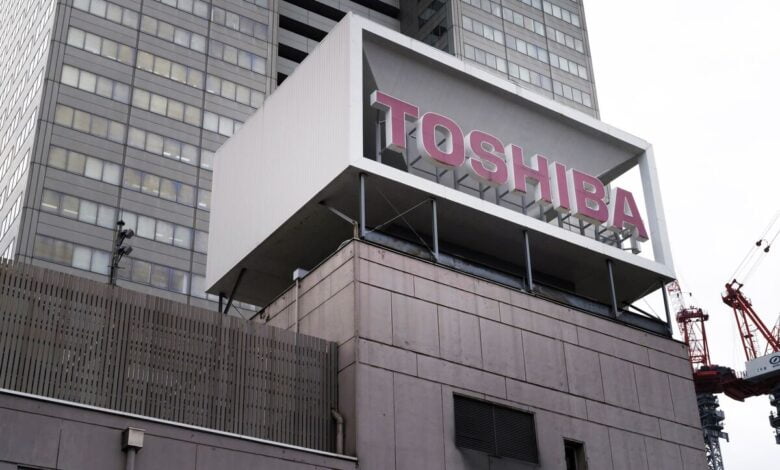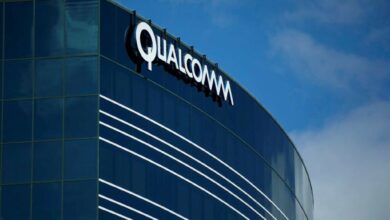Toshiba delists amid a crisis after 74 Years

Toshiba, the Japanese corporation most associated with the nation’s dominance in electronics during the 20th century, has delisted. It was delisted by the Stock Exchange of Tokyo on Wednesday, marking the end of its 74-year public life and nearly 150 years in business.
Table of Contents
One of the company’s departing board members warned foreign investors about “what works and does not work in Japan.”
It has exited the public markets as a result of the largest leveraged buyout in the history of the nation, a ¥2 trillion deal.
On December 20, the Japanese industrial behemoth Toshiba removed from the Tokyo and Nagoya stock exchanges with the consent of its shareholders. The company, which is privately held, aims to improve its financial situation and restructure its operations.
On November 22, a shareholders meeting decided to delist. Voters approved the nation of Japan the industrial Partners, a Japanese investment fund, purchasing all Toshiba shares. It used to be a heavyweight in the Nikkei index and has been listed on the stock exchange in Tokyo for a total of 74 years.
An inventive past of Toshiba
The company’s inception dates all the way back to 1875. It became known as a leading innovator in electronics. Under the new ownership, Toshiba has already started to take action. For example, it has partnered with investor Rohm to produce chips that regulate the power supply to electronics. According to some analysts, the company might be split up in an attempt to maximise value.
It created the first refrigerator, washing machine, and colour TV in Japan. Additionally, it was the pioneer in the rice cooker market.
According to a company history, Toshiba’s origins can be traced to a factory established in 1875, which was established less than ten years after the end of 250 years of cultural and economic isolation for Japan. After merging with the Tokyo Electric Firm in 1939, its successor Shibaura Engineering Works changed its name to Toshiba in 1978.
Following its survival of the Second World War, it’s reputation grew along with Japan’s economy, which grew to become the second largest in the world behind that of the United States. It rose to prominence as a global brand thanks to its laptops and TVs. It developed into a group of companies that became a major force in the nuclear power and semiconductor industries.
Fraud leads to a fall
Over the past ten years, the company’s fortunes have started to decline. In 2015, accounting fraud came to light after Toshiba acknowledged that it had been inflating its operating earnings for seven years.
Due to the bankruptcy of its US nuclear plant subsidiary in 2017, debt exceeded assets in that year.
In order to rectify the debt-to-asset ratio, which would have resulted in the company’s eliminating from the stock exchange, management chose to accept funding from foreign activist investors.
However, that resulted in additional issues, such as disputes over business choices.
Toshiba spun off its semiconductor division, which was regarded as its crown jewel, and sold its PC and TV businesses.
Eight years of unrest, including a fraud in accounting scandal, an economic downturn, an asset fire sale, and a savage conflict between leadership and activist shareholders, preceded that deal.
Fund managers who held it’s stock during that time, former members of the board who are still barred from public speaking, and bankers and solicitors who counselled the company through its numerous trials all testified that during those years, Toshiba demonstrated deficiencies in governance and an institutional reluctance to make decisions in the best interests of shareholders.
The desire of “made-in-Japan” wanes
Accompanying Toshiba’s decline, other “made-in-Japan” electronics companies such as Sony and Panasonic are no longer global titans.
Deal Lab, a market research firm, reports that China’s Haier and South Korea’s Samsung currently control the largest market shares for consumer electronics worldwide.
What’s coming up?
Osanai Atsushi, a professor at Waseda Business School, claims Toshiba was forced to delist from the stock exchange in Tokyo. Typically, stockholders look for quick profits. However, there are instances in which managers must come up with long-term plans for the business that diverge from what investors desire.” According to Osanai, it can be brought back to life if its management can come up with a winning plan because the company still has competitive hardware and software technologies.

He gives the installation of it’s high-speed lifts in what was once the tallest building in the world, a building in Taiwan that was inducted into the Guinness World Book of Records as an example.
According to Osanai, the company’s cutting-edge information and artificial intelligence technologies, when paired with this kind of equipment innovation, can create value.
He continues by saying that the days of video recorders, fax machines, and analogue TVs—items that are hardly in use today—were the heyday of “made-in-Japan” electronics.
Electronics producers like it is adjusting to the changing times along with consumers by looking for innovative ways to conduct business.
Related Posts of Author
The Gemini era: Google has finally launched best ever AI model
The Rise of Bitcoin: A Comprehensive Analysis and Present Situation
Fed maintains current rates, announcing three reductions in 2024




